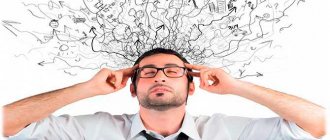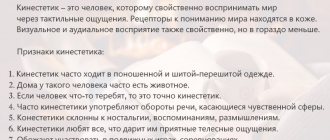- November 5, 2019
- Psychology of thinking
- Alina Pavlova
Today's world is more saturated than ever with distractions. In the frantic pace of life, we rarely have the chance to stop and carefully weigh this or that decision, to make a truly informed choice. How to focus on your own thoughts when there is such an abundance of colors, sounds, tastes around?
However, the problem is not always the environment around us, although its role is really important. Trouble concentrating may be related to other factors. In this article, we will tell you in detail about what affects our ability to concentrate and how to keep our attention on one thing without being distracted by anything else. The methods presented here are perfect for any type of task and will be useful both in work and study, as well as in any form of creativity or hobby.
To begin with, we will tell you about the main factors that may prevent us from focusing on one specific task.
Health status
It's no secret that the quality and duration of night's sleep directly affect our attention. However, not many people know that too much sleep is just as harmful as too little sleep. In both cases, we feel overwhelmed and lethargic, and concentration is out of the question. Each person needs a different number of hours for proper sleep. In general, it should be at least seven hours. Try to monitor your condition, and once you determine what sleep duration is ideal for you personally, stick to it on a regular basis.
Nutrition also plays an important role. You've probably noticed how difficult it is to concentrate when we overeat or, on the contrary, feel hungry. Both have a negative impact on the health of the body, which, in turn, has a detrimental effect on the brain. Not only attention begins to suffer, but also memory. Try to diversify your diet as much as possible, consuming enough protein, fiber, and carbohydrates every day. Don't avoid sweets, but reduce your consumption if possible.
And finally, stress. It exhausts all body systems and disrupts their functioning, which also affects sleep and appetite, creating a vicious circle. Chronic stress can lead to much more serious problems, including mental problems. How to concentrate in this case? It is very important not to put off solving your problems and work through them as they arise. Remember that asking for help is not a sign of weakness. It just means that you are a living person.
Exercises to develop attention
- Take a close look at your office or room at home. Choose one subject and turn your full attention to it. You need to look at it for a couple of minutes. For example, a flower in a pot. Without touching it, you need to try to understand what kind of surface the pot has (smooth, ribbed, rough), what colors and shapes the leaves of the flower have, how the shadow falls. By doing this simple exercise every day, you can gradually learn to concentrate on more important things.
- You can use the children's game "Find the Differences". Find special pictures with several differences. The more there are, the better. Compare two images and find different details that are different. This exercise is great for developing attention to detail.
- A fairy tale can also be an excellent exercise for developing concentration. You can do the exercise with your children or simply by mentally composing a fairy tale involving surrounding objects. It's quite fun and helps keep your attention longer.
Multitasking
As amazing as the human brain may seem to us, even it has its limitations. Multitasking is almost as harmful a factor as poor sleep and unsystematic eating. In this regard, our brain is very similar to a computer: it begins to freeze if there are many “programs” or tasks running. In other words, the more we plan to do in one time period, the more difficult it is for us to focus on completing one single, or even the main task. Consequently, its quality will suffer, which will only add to our own uncertainty. How to concentrate if you have a lot to do? We'll talk about this a little later.
Learning to concentrate
The ability to concentrate is not given to us from birth (which is a pity). Focusing must be practiced, trained like a muscle every day, because there is no magic pill that gives instant results.
The most important thing is not to worry too much about failure. They should serve as lessons from which you draw conclusions. If we constantly get upset and blame ourselves for being weak-willed, it will be even worse. You should treat your mistakes with calmness and composure - it won’t work now, but after a while it will definitely work. The main thing is not to give up!
Routine, monotony and boredom
No matter how much you love what you do every day, sooner or later you will be overtaken by a feeling of boredom. And the point is not that what was once a favorite activity has ceased to be such, to arouse interest and inspiration. However, when we do the same thing over a period of time, our brain quite naturally goes into energy conservation mode. Consequently, focusing becomes more difficult. This usually happens when we get stuck at one level of complexity in a workflow. Or progress is being made, but not fast enough. We’ll tell you later how to concentrate in this situation.
We found out what prevents us from concentrating on one task. It turns out that it’s not always about the surrounding reality, and it’s often worth thinking about your own lifestyle. However, we should not forget that everything in nature is interconnected. What happens in our bodies and minds can be a direct reflection of the environment in which we live or spend most of our lives. And vice versa.
Finally, we come to the main question of how to focus on one thing without being scattered among other things and concerns. So where to start? How to direct and keep your attention on what is really important and necessary?
Help from psychologist Daria Milai
Sign up for my consultation and I will help you:
- develop the ability to avoid involuntary attention;
- learn to fully control the work process;
- eliminate all obstacles in a timely manner;
- increase productivity indicator;
- plan your time and activities correctly;
- avoid pointless loads.
Formulate a goal and plan
If you don’t know where you’re going, you’ll never get anywhere. The situation is similar with any task: if you do it without having any specific goal, it is unlikely that anything will come of it. When we work for the sake of work, study for the sake of the very fact of studying, engage in creativity for the sake of creativity itself - this is a deliberately losing option. Indeed, in addition to the fact that we do not achieve tangible progress, on top of everything else, we waste our strength, energy and, of course, time. And they, in turn, are invaluable resources that, when used correctly, help achieve great success.
To focus your attention on the one thing that is most important to you, set yourself a clear and, most importantly, achievable goal. This can be either a short-term goal (up to about five days) or a long-term goal (up to a month or more). Choose the option that suits you personally. It is very useful in such situations to know your personal characteristics. What motivates you more: getting results as soon as possible or doing everything gradually, without rushing?
In addition to setting a goal, create your own individual plan for completing a particular task. This is best done in writing. A goal broken down into stages of its implementation seems more achievable and realistic. This way you will clearly understand what exactly and in what order you need to do to get the desired result. In addition, the plan will prevent you from forgetting anything important, and you will not have to keep everything solely in your head, which will give you additional energy. Focus on what matters most, with a clear goal and a plan to achieve it, and your attention will be much more stable.
Worries
“After 9/11, the entire nation had PTSD,” Holowell says.
The spread of bad news has made us less calm than before. The rapid increase in negative news on the Internet is one of the paradoxes in which constant communication has made people more divided. “Loneliness makes us more vulnerable to anxiety because when we're lonely, we worry more,” Holowell says. A stressful environment can unsettle you. The best thing in this situation is not to be alone with your feelings.
“Even just talking to someone for a minute can help ease your anxiety,” Holowell said. Understand that meeting with people close to you is a sure way to drive away depressing thoughts. It's better than getting lost in gloomy thoughts at work.
Prepare your work area
The environment in which we work, study or engage in creativity sets the pace for the entire work process and directly affects its quality. It is important to adjust the environment so that it is comfortable for you to work in it. After all, we are all very different: some people need everything to be in their place to concentrate, while others are inspired by creative chaos.
True, often a large number of objects in the work area only complicate the process, as a person who has surrounded himself on all sides with stationery, papers and other things that, according to him, cannot do without, often says. Even so, try to free up the work area as much as possible, leaving only the essentials. You can always take everything else out of drawers or shelves. The fact is that our brain perceives a large number of things in the workplace as multitasking, which we talked about. There is simply not enough attention, because it is distributed to every nearby object.
In addition to answering the question of how to focus on one thing, it is important to talk about the benefits of silence. Even if you find it easy to concentrate while working in a noisy environment, your brain still has to process the information you hear. Which, in turn, takes away additional energy from you. Make sure that you are not disturbed by extraneous sounds in your work area, and if this is not possible, take breaks by going to a quieter place. And do not forget to ventilate the work area.
How our brain works
The mind does not know how to function in several different directions in parallel. At the same time, thoughts wander in your head all the time, which is why you have difficulty concentrating.
When a new task appears, at the very beginning of its implementation, brain activity is aimed at creating neural connections. The more complex the question, the longer this process takes. Within a few minutes, most of the necessary neurons are activated, so it becomes easier to concentrate.
How does concentration happen?
Any business can be divided into 3 stages:
- Turn on (0–15 min.). This is the most energy-consuming stage.
- Productivity phase (20 minutes - several hours).
- Fatigue (decreased performance). Time to take a break.
So, every time you are distracted at the beginning of work, your brain needs to “turn on” again, spending a certain number of minutes on this - you will not be able to immediately concentrate on the goal.
How to learn to concentrate on one thing
The best way to maintain an effective state is to put off all incoming thoughts, tasks, calls, messages until the moment you start to get tired. Then in the third stage you will be able to immediately complete all the additional tasks that have accumulated. This way you will be distracted from the main task, take a little break from it, and switch to other little things.
Come up with your own rules and restrictions
When considering how to focus on school, work, or creativity, it's important to be aware of what distracts you. Social networks, instant messengers, offers from colleagues to take a tea break or just chat with them for a minute or two - all this is great, but only during a really necessary break, which you will talk about later. Appreciate your work and respect your own capabilities. For example, schedule a specific time to check social media and stick to it. If possible, purchase a second phone that will be exclusively for work calls and correspondence.
Stuck on screen
Holowell coined the term “screen stickiness” to describe the “pacifier” effect of the Internet.
As soon as we feel the first “urges” of boredom and frustration, we immediately go online. “People go online and don’t actually do anything important, but are just glued to the screen,” he notes. The best way to avoid this is to divide your day into periods of focusing on the most important work and periods of interaction with potential irritants such as email, social media. It should also be possible to look away from the screen, especially if you are working on things that require maximum attention. Turning off your phone and the Internet at such moments will help you be more productive, defeating the desire to “stick” to the global network. “There’s something mysterious about unread messages,” Holowell said. “If you hear a message or see an icon, you will want to read the content, even if the chances of it being useful are minimal.”
Maintain a balance of work and rest
The phrase “I can’t concentrate at work!” This is often said by those who do not know how to competently distribute their activity. But not only the quality of your work, but also your physical and psychological well-being depends on this. Again, everything is very individual here. Observe your condition and determine the approximate time during which you can calmly do your job without feeling tired, uncomfortable, or irritable. Remember one important thing: it is better to take frequent breaks (10-30 minutes) than to work non-stop with only one hour break a day. Your health is much more important. Try to go for a short walk whenever possible, or at least look out the window to saturate your brain with oxygen. It will also be useful to simply walk around the room.
But how can you focus on work if it turns out that there simply isn’t enough time for a full break? Try breathing techniques and meditation. They can be done without leaving the room. This has a positive effect not only on the functioning of the brain, its memory and ability to concentrate, but also on the entire nervous system. Choose the meditation or breathing practices that suit you best. You will feel their benefits in the near future.
Medications
You can increase concentration and improve the general condition of the body with the help of a number of medications:
- Glycine. Relieves stress, calms, increases brain performance and attention.
- Vitrum memory. Medicine based on herbal ingredients. Enhances alertness, normalizes blood circulation and, as a result, brain nutrition.
- Undevit. Vitamins A, B, C, E, P. Has a general strengthening effect.
- Aminalon. Helps remove toxins accumulated in the body and restore the functioning of the nervous system, thereby improving performance and concentration.
- Bilobil. Improves sleep and mental activity, eliminates anxiety.
- Intellan. Helps cope with depression and eliminates forgetfulness.
- Ginkgo biloba. Improves memory and the ability to maintain attention, eliminates insomnia and dizziness.
The listed drugs have virtually no contraindications or side effects. However, it is recommended to consult a doctor before using them.
Take care of your health
No matter how great things we are capable of, we are only human. Like any living organism, it is extremely important for us to maintain our health. Sleep enough hours, make sure your meals are nutritious and regular, and include at least minimal physical activity (exercise, aerobics) in your life. Try to avoid overwork, as it can have more serious consequences than we used to think. Overwork can lead to emotional burnout, an increased risk of colds, and simply chronic stress. Take care of yourself.
Moreover, we should not forget about the importance of psychological health. Set yourself only realistic, feasible goals and objectives. Maintain an active social life, because communication with family, friends, buddies and good colleagues is very beneficial for our psyche. And of course, try to solve problems that concern you - both work and personal - as soon as they arise. Or in the near future.
Reward yourself
When it comes to focusing on work, school, or creativity, there is one very important point that should not be overlooked. The reward system really makes a huge difference. The thing is that by positively reinforcing our own achievements, we only increase their number in the future, not to mention the fact that this makes it much easier for us to achieve our goals. What’s important is that you should reward yourself even for what you think are the most insignificant victories.
For example, you can reward yourself for each completed item in the plan that we talked about. It could be something small but pleasant: from basic verbal praise to a small purchase. Therefore, when you achieve the goal itself, the reward should be more tangible. Here you can already treat yourself to some good thing, for example, clothes, a delicious dinner at a restaurant, and even a trip to another city or country. This way your brain remembers that any achievement, even a small one, is followed by something very pleasant for you. In the future, it will be easier for you to concentrate on the tasks at hand and, therefore, easier to complete them.
We adopt experience
— Watch how other people concentrate . Look at a person who is captivated by an interesting film or book. All their receptors are aimed at perceiving what is happening. Try to copy their behavior.
- Decide what, or who, you want to focus on . Have you noticed how when people become close, they communicate a lot with each other, they become similar? They adopt each other's phrases, behavior patterns and habits. When you pay attention to something and concentrate on it, we adopt some properties of this object.
- Surround yourself with well-organized people . (This follows from the previous point) If you want to learn concentration, be with those people who know how to do it.
— What we train trains . If you decide to train concentration, just do it, study it, try different exercises and techniques. What we pay attention to will definitely improve and train.
Don't wait for inspiration - just start
And the last thing you need to know is how to concentrate at work or any other activity. Sometimes we spend much more time just collecting our thoughts. Even if we like the task and are fully motivated to complete it, it happens that we never manage to start it. And we are waiting for the right moment when inspiration overtakes us. We are waiting for Monday, the end of vacation, a good mood or simply sunny weather.
This is one of the most common myths that in order to decide to do something, you need to wait for the right moment. You may wait too long or not wait at all. When all you need to do is start. It can be quite difficult, but it's worth it. Just try it. Just as appetite comes during eating, so interest comes during work, study and creative processes. The main thing is to overpower yourself at the very beginning, and then everything will go like clockwork. We can guarantee this to you.
In this article, we told you how to focus and not be distracted from what is important to you. Now you know what factors influence the ability to concentrate, as well as what helps us concentrate on one task for a long time. The work environment really matters. It is important to be able to carefully create it so that you feel as comfortable as possible. However, remember to put your own health and well-being first. If you've tried everything we've talked about in this article and you're still having trouble staying focused, you might want to seriously consider getting some rest. Sometimes a long and quality vacation is all that is needed to return to the work process collected and active.
Remember that our attention is based on interest. Do what you really enjoy, what inspires you to achieve and makes you move forward, no matter what. If you get tangible returns from your business (not only financial, but also emotional), then you are on the right track. Do what you love and love what you do. This is the key not only to any success, but also to a happy life.
How to Practice Active Concentration
This technique consists of four useful techniques.
Take notes
If the work format allows it, write by hand. This is one of the most effective methods that allows you to constantly keep your brain in good shape and be as involved in the process as possible. As soon as you start to feel distracted during a business meeting or lecture, take more notes. They may not be useful, but they will help you maintain your focus.
Scribble
Drawings in the margins really help you concentrate. If you have to listen to a large amount of information for a long time, by drawing even the simplest elements, you will not allow yourself to get bored and be distracted by extraneous thoughts, you will feel here and now.
How to Become More Focused: Speak Out Loud
Voicing allows you to better understand what you read or write down. Verbalization promotes maximum involvement in activity, because by concentrating on pronouncing a sentence, the brain does not wander, but keeps one task in focus.
Look for the right solutions
When thoughts start to take you in another direction, consciously bring them back to work, telling yourself “I’m doing everything right.” At this moment, start reading, writing or listening even more actively, think about every phrase, feel your actions.











